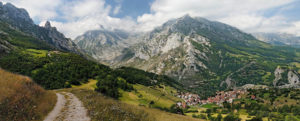 Originally published at Intercontinental Cry
Originally published at Intercontinental Cry
On the northwest Iberian peninsula, in Galicia, local communities manage more than 2,800 mountains. The Spanish coastline includes 230 cofradías:ancient, locally run governance systems that provide 83 percent of the country’s fishing employment and 95 percent of all Spanish ships. Iniciativa Communales estimates that roughly 60 percent of Spain falls under what international organizations call ICCAs: Indigenous Peoples and Community Conserved Territories and Areas. In Spain, these community-managed sites include forests, pastoral lands, Sociedades de Caza (hunting associations) and marine and coastal areas.
ICCAs are defined by the International Union for Conservation of Nature (IUCN), an international organization composed of civil society groups and governments with observer and consultative status at the United Nations. Founded in 1948, it is the world’s largest and most diverse environmental network and receives counsel from about 16,000 experts. In 1961, it set up the World Wildlife Fund (WWF).
ICCAs must meet three criteria: Indigenous Peoples or a community share a “close and profound” relationship with the area, territory or habitat; the people or community participate meaningfully in the decisions related to the site and have de facto or de jure authority to initiate and implement such decisions; and those decisions and efforts result in “conservation of biodiversity, ecological functions and associated cultural values regardless of original or primary motives.”
Although “indigenous” may be a confusing term in the European context, community managed land areas have a rich history in Europe, despite the lack of recognition by national governments or the European Union. This lack of recognition is worldwide, regardless of the type of ICCA, and means that Indigenous and community managed areas of land or water are not fully included in national and international conversations about conservation. As a result, conservation efforts are falling far short of what they could achieve. Many areas of the world are insufficiently protected, community and Indigenous rights and livelihoods are at risk and opportunities to combat climate change may be lost.
